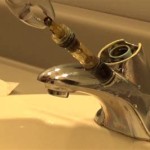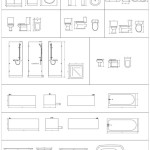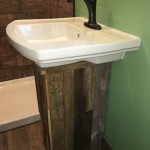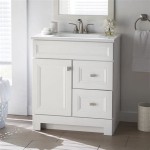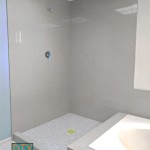My Bathroom Sink Smells Moldy: Essential Aspects to Consider
When it comes to maintaining a clean and healthy bathroom, addressing musty odors is crucial. If your bathroom sink emits a moldy smell, understanding the essential aspects behind this issue is key to effectively resolving it. ### Causes of Mold and Odor *Moisture buildup:
Bathrooms are inherently humid environments, creating the ideal breeding ground for mold growth. Insufficient ventilation or poor drainage can exacerbate moisture problems. *Organic matter:
Mold thrives on organic matter, such as soap scum, hair, and skin cells, which accumulate in sink drains and traps. *Leaking pipes:
Hidden leaks around the sink or drain can introduce moisture into the area, fostering mold growth. ### Health Concerns *Respiratory irritation:
Mold spores can trigger respiratory problems such as coughing, wheezing, and difficulty breathing, especially for individuals with allergies or asthma. *Infections:
Some mold species can cause infections, such as skin rashes, eye irritation, and sinus infections. Prolonged exposure may even lead to systemic illnesses. ### Inspection and Troubleshooting *Visual inspection:
Check the sink basin, drain, and trap for any visible mold growth. Look for dark spots, discoloration, or slimy residue. *Smell test:
Remove the drain stopper and inhale from the drain. A musty or moldy odor indicates potential mold accumulation. *Plumbing examination:
Examine pipes and connections for any leaks that may contribute to moisture buildup. ### Cleaning and Prevention *Anti-mold cleaners:
Use cleaners specifically designed to kill mold, such as bleach or hydrogen peroxide. Apply them to affected areas and let them soak for a few minutes. *Regular cleaning:
Keep the sink and drain clean by rinsing with hot water and vinegar or baking soda weekly. *Ventilation:
Ensure adequate ventilation in the bathroom by opening windows or installing an exhaust fan. *Drain cleaning:
Regularly remove hair and debris from the drain using a drain snake or drain cleaner. ### Additional Measures *Air purification:
Consider using an air purifier with HEPA filters to remove mold spores from the air. *Dehumidifiers:
Dehumidifiers can help reduce moisture levels in the bathroom, creating a less favorable environment for mold growth. *Professional assistance:
If DIY cleaning methods fail to resolve the odor, consult a professional plumber or mold remediation specialist for further inspection and treatment. By understanding the essential aspects related to a moldy-smelling bathroom sink, you can effectively diagnose and address the problem, ensuring a healthy and odor-free bathroom environment.
Moldy Smelling Water From Bathroom Faucet Hometalk

What To Do When The Bathroom Sink Smells Like Mildew Mold Smell

What To Do When The Bathroom Sink Smells Like Mildew Mold Smell

How To Prevent Find Get Rid Of Mold In Your Bathroom

How To Clean A Stinky Sink Drain By Home Repair Tutor

5 Signs That You Have Mold Growing In Your Sink Drain
What The Heck In This Ugly Black Stuff My Wife Has Been Complaining About A Nasty Smell Coming From Her Bathroom Sink Since We Moved Into Our New House Two Years Ago

How To Remove Musty Odors From Kitchen Sink Water Damage

How To Clean Mold In Bathroom Basin

Why Is There A Smell Under My Sink
Related Posts

